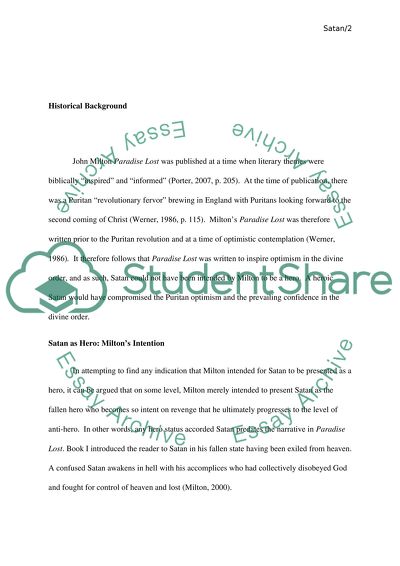Cite this document
(“The Character of Satan in Milton's Paradise Lost Research Paper”, n.d.)
Retrieved from https://studentshare.org/literature/1439114-the-character-of-satan-in-milton-s-paradise-lost
Retrieved from https://studentshare.org/literature/1439114-the-character-of-satan-in-milton-s-paradise-lost
(The Character of Satan in Milton'S Paradise Lost Research Paper)
https://studentshare.org/literature/1439114-the-character-of-satan-in-milton-s-paradise-lost.
https://studentshare.org/literature/1439114-the-character-of-satan-in-milton-s-paradise-lost.
“The Character of Satan in Milton'S Paradise Lost Research Paper”, n.d. https://studentshare.org/literature/1439114-the-character-of-satan-in-milton-s-paradise-lost.


